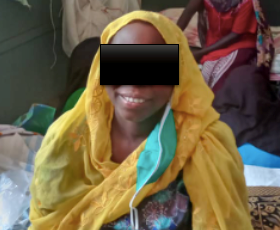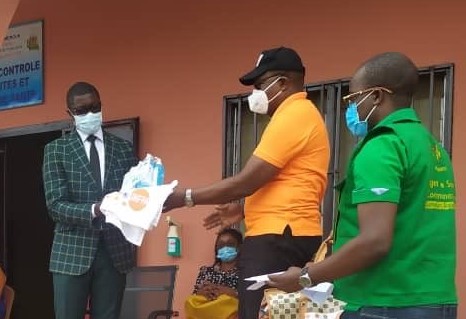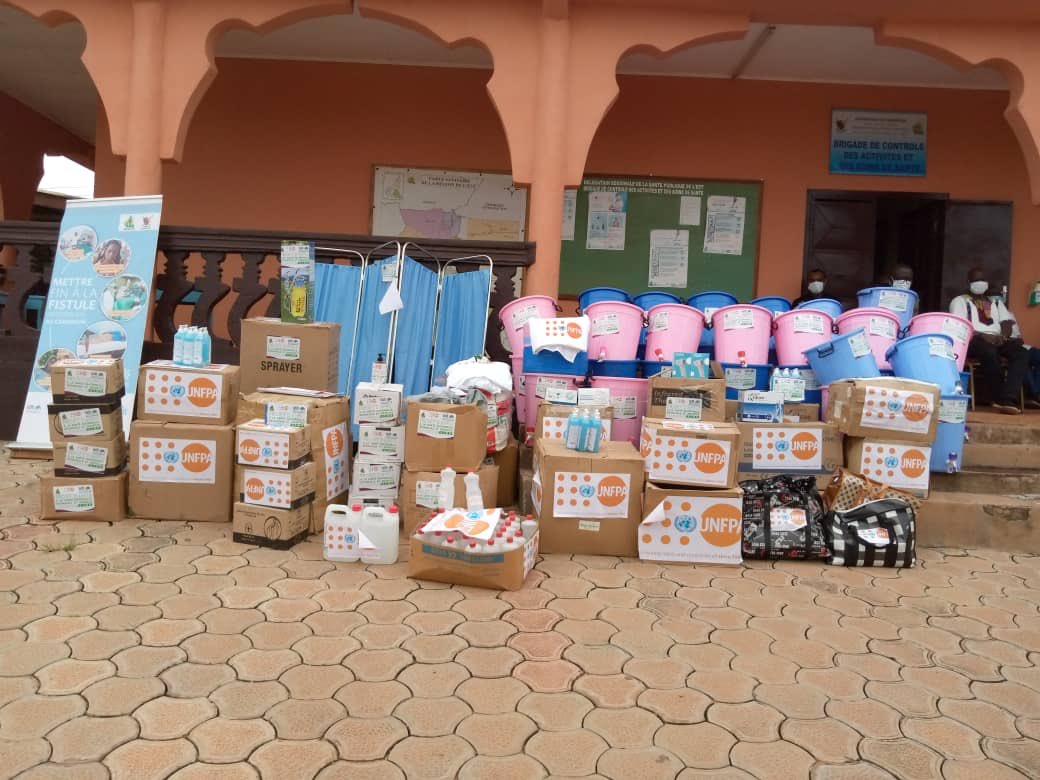ELIMINATING OBSTETRIC FISTULA AMIDST CORONAVIRUS.

Photo July 2020
Amidst COVID-19 pandemic, UNFPA continues to care for the dignity & health of women and girls through free Obstetric Fistula surgery in Cameroon. In the month of July, these free campaigns were run in the Far North and North Regions, at the Kousseri annex of the Regional Hospital and Garoua Regional Hospital, respectively. Thanks to funding from the Islamic Development Bank and technical assistance from UNFPA, these training sessions and free surgical intervention campaigns also gave room for the training of medical personnel in Obstetric Fistula care.
In Kousseri, the campaign which held from the 27th of June to the 5th of July 2020, enabled the training of 12 medical personnel to provide care locally and save women from covering long distances in search of healing. To this end, 3 teams of 4 health personnel from Mada, Goulfey and Kousseri benefited from a capacity reinforcement exercise to carry out obstetric fistula surgery and care.
A similar campaign was held in Garoua from the 16th of July to run to the 05th of August 2020. Here, eight (8) medical personnel, among whom surgeons, midwives and nurses benefited from a training in Obstetric Fistula care both from the Regional Hospital as well as the Guider District Hospital.
Most of these women, aged between 20 and 61years, saw their lives jeopardised and their income generating activities crumble due to their condition. After receiving this life changing surgical intervention, they are now looking forward to rebuild their socio-economic lives.
Receive the smiles of some of the women who benefitted from this free surgery. They are now healed with their dignity restored.
https://twitter.com/UNFPACameroon/status/1284055833698066433
REINFORCING REPRODUCTIVE HEALTH SERVICE DELIVERY AMIDST COVID-19

Regional Delegate.Photo/ UNFPA
July 2020
In order to optimize reproductive health service delivery to women and girls in the Coronavirus (COVID-19) context, UNFPA contributed to strengthening regional delegations of the Ministry of Public Health in the Centre, East, Adamawa and North Regions with Personal Protective Equipment & hygiene material.
As it is, the COVID-19 pandemic, which hit Cameroon in March 2020, led to the implementation of physical distancing measures with strict compliance with elementary rules of hygiene. However, the supply of Reproductive Health services and close follow-up of patients, especially for pregnant women, remained a vital need compelled to remain available without interruption while taking into account measures towards a minimum risk of contamination to the COVID-19. To this end, UNFPA has continued to work in collaboration with the Ministry of Public Health and other partner ministries towards service delivery and the mitigation of risks related to complications during child birth and eventually, maternal mortality.

provided by UNFPA at the East
Regional Delegation for Public Health/
Photo UNFPA July 2020
The kits handed over to the regional delegations, comprising of prevention and protection equipment such as hand washing devices, detergents, face masks, surgical gloves and PPE, are aimed at not only protecting health personnel providing Reproductive Health services, but also ensure the safety of patients and most especially, pregnant women. This was made possible thanks to funding from the Islamic Development Bank in line with the “Project to support maternal, child and infant health” implemented in Cameroon by UNFPA on behalf of the Ministry of Public Health.
By providing this equipment, UNFPA continues to support the people of Cameroon in curbing the risk of high rates maternal mortality in the present COVID-19 context.





